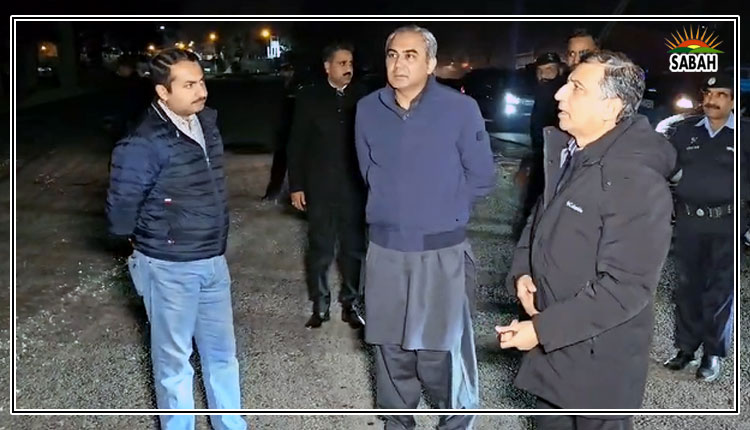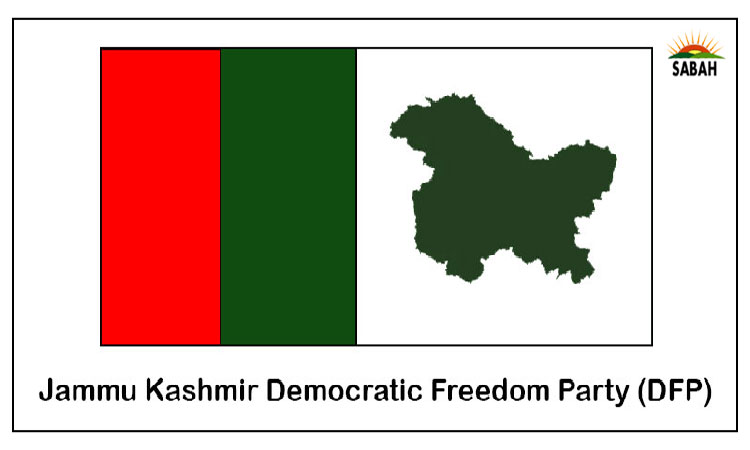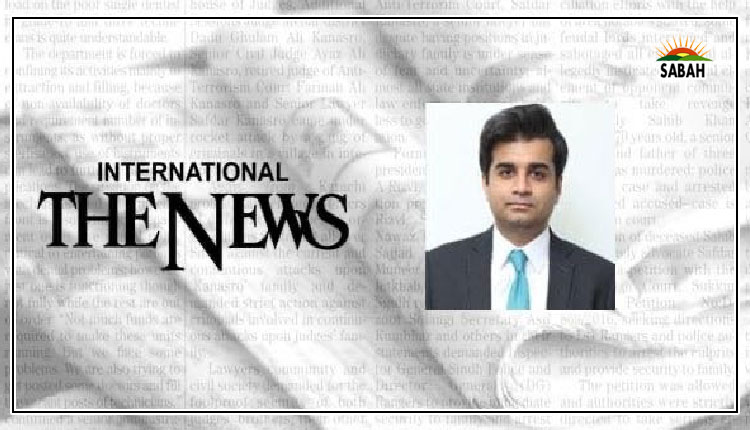Electrocuting the consumer…Ammar Habib Khan
The government recently announced a hike in electricity tariff complying with requirements of the fresh funding unlocked from the IMF. Successive governments have done the same increasing electricity tariffs is the easiest condition to meet, since its impact is solely borne mostly by the residential and commercial customer.
Electricity tariff can be increased with the stroke of a pen, and the end-user pays the ultimate price. Taking such unilateral actions without reforming the electricity generation, transmission, and distribution system has resulted in increasing inefficiencies that have now started to compound. Since these inefficiencies are not fixed due to lack of will, or ability, or both of the government the state effectively transfers the incompetence to the end-user, who effectively pays the ultimate price for incompetence of the state and its functionaries.
It is estimated that electricity will be sold in a range of Rs40-55 per unit (depending on the consumption slab) following the increase for most non-lifeline consumers a lifeline consumer being defined as any consumer that uses less than 200 units of electricity per month. Reviewing benchmark power purchase price as determined by Nepra, it can be seen that Rs6.52 per unit is the energy cost, while Rs14.09 is the capacity charge per unit, accumulating to Rs20.6 per unit of generation cost. Moreover, an additional Rs22.95 per unit are transmission and distribution charges, that cover for colossal losses and inefficiencies that exist in the system. Simply put, the cost of transmission and distribution is much higher than the cost of generation of electricity.
The final price paid by the consumer also includes various government taxes and charges, such as withholding tax, income tax, sales tax, TV license fee etc. The consumer is now even paying mark-up accrued on circular debt, something that is solely a consequence of a complete failure of governance. Such additional surcharges further inflate the bill, while not penalizing those responsible for such governance failures.
As the consumer of electricity has the least say in all of these matters, it is fairly easy for the regulator, the price-setting bodies, and the government to impose additional charges without considering their impact on the consumer. In effect, almost 30 per cent of the electricity tariff is various taxes and surcharges. If the state is actually serious about making electricity affordable, it can start reducing taxes and surcharges, and bridging the revenue gap through expansion of the tax net.
A government that has been posting perceptual deficits for almost two decades now has clearly demonstrated its unwillingness to put its fiscal position in order by either expanding the tax net or rationalizing expenditures. In the absence of this, the government continues to double down on indirect taxation to generate incremental revenue. Increasing electricity tariffs eventually leads to higher collection of taxes by the government, further squeezing the consumer in the process. A fiscally responsible sovereign that actually exists to serve people would deem it inappropriate to indulge in such distortions for taxation. But a fiscally irresponsible sovereign would squeeze whatever little disposable income any household has, lest it be pushed to actually expand the tax net to increase tax revenues.
A consequence of increasing tariffs, and correspondingly lower consumption and power economic growth, is apparent at this stage. The average consumption of a household has not changed in the last five years, wherein electricity tariff per unit has increased by more than 90 per cent during the same period. Meanwhile, real incomes have largely stayed static during the period. As the price of electricity increases, household and commercial consumption reduces. There is a strong direct correlation between electricity consumption and economic growth. As the price of electricity continues to increase, it makes our commercial and industrial entities less competitive on a global scale, resulting in contraction in economic output, job losses, and eventually lower growth.
Increase in electricity tariffs also affects household consumption behaviour. As tariffs increase, there is less disposable income available for allocation towards nutrition, health, and education. The inefficiency of the state that leads to increasing tariffs effectively also reduces the budget households have for base-level sustenance. As tariffs continue to increase, they will further squeeze the middle class. Households that consume relatively high electricity and have access to land will eventually convert to solar and benefit from lower electricity prices. Meanwhile, those households that lack resources will continue to be stuck with an inefficient state mechanism that punishes households for being poor, rather than supporting them.
Pakistan does not have an electricity generation problem; it has a transmission and distribution, compounded by a fiscally irresponsible state, problem. Electricity tariffs can be rationalized if transmission and distribution infrastructure is improved. Among the top ten loss-making state-owned entities, all distribution companies owned by the government are in the top ten, with their losses being largely plugged by the taxpayer.
The country cannot attain sustainable and inclusive economic growth if it cannot provide affordable energy to its households and businesses. We have sufficient existing and planned generation capacity in place. How efficiently that electricity is transmitted effectively determines the price that is paid by the consumer. If the country wants to attain sustainable growth, providing affordable electricity to households and businesses is a critical condition. The energy cost is already considerably low, and cannot be squeezed further. It is the inefficiency that is plaguing the system that needs to be culled, and that requires improving overall governance and being more responsible fiscally.
The country can either be run for the benefit and welfare of its people, or it can be run in an inefficient manner to serve the interests of the status quo. It has been the latter that has been happening for many years now. If this does not change, we will be succumbing yet another generation to years of low growth, pushing millions into poverty while constraining economic growth in the process.
Courtesy The News












